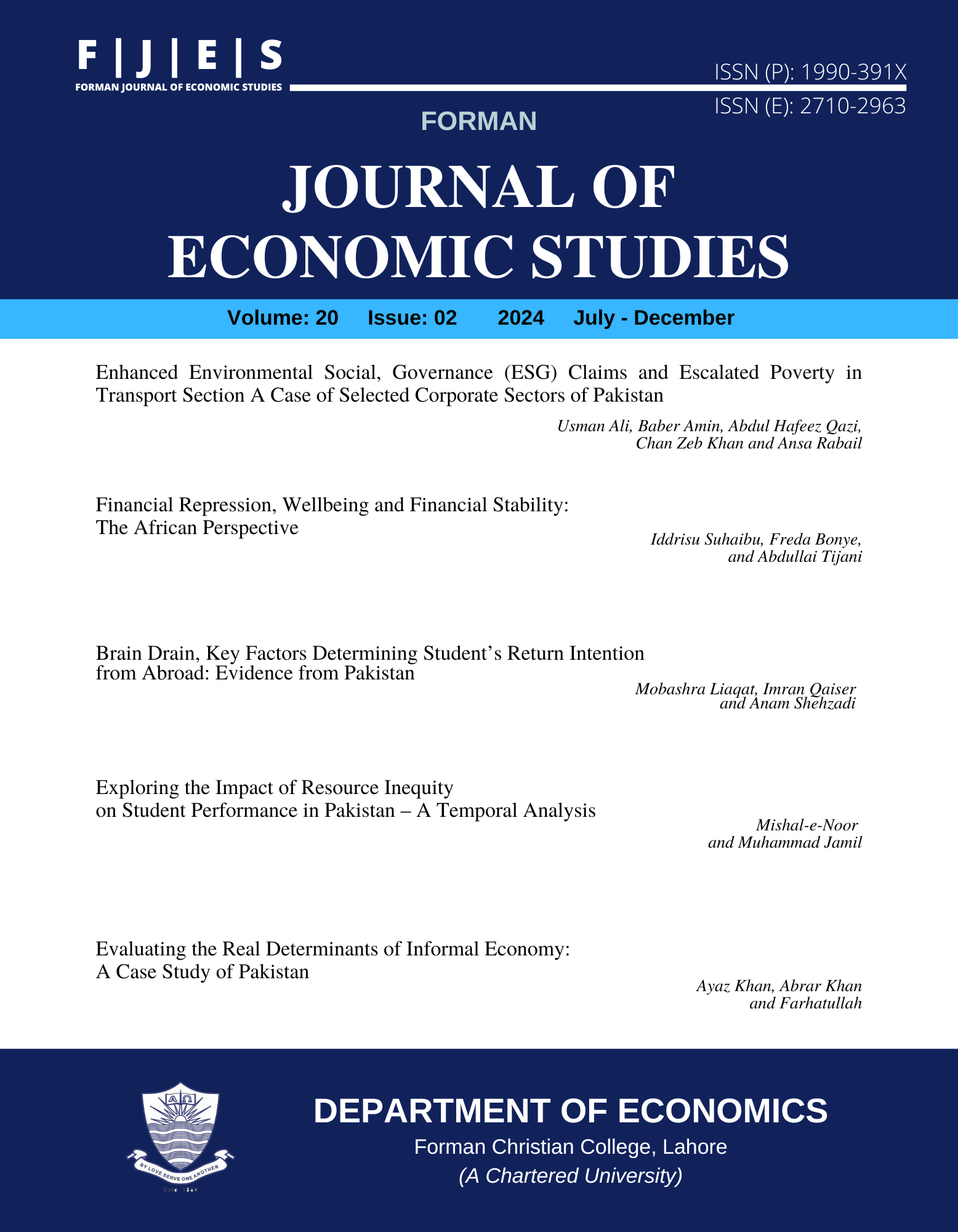Evaluating the Real Determinants of Informal Economy: A Case Study of Pakistan
Keywords:
Developing Country, Informal Economy, Real Factors, Cost of Working, ARDLAbstract
One of the most critical issues for developing economies is the ever-increasing size of informal economy. Hence, informal economy and the increase in its size are posing a real economic challenge to developing countries. Pakistan being a developing country is not an exception in this regard where the size of informal economy is expanding which, of course, is a real concern for the country. To tackle and understand the nature of the issue the current study, therefore, attempts to evaluate the determinants of the real size of informal economy from 1972 to 2020 for Pakistan. Real factors of the economy like Employment level, political stability, tax to GDP ratio and cost of working in informal economy are considered in the current research for analysis. Autoregressive Distributed Lagged (ARDL) method is applied to evaluate the informality in short-run and long-run with the help of these real factors. The result shows that in the long run employment level, cost of working and political stability negatively and significantly, while tax variable positively and significantly contribute to informality. In the short run the findings are different as some factors significantly contribute while others do not. Findings of study identify the factors augmenting the size of informal economy in Pakistan. It is suggested to the policy makers in Pakistan that the increasing size of informal economy can be curtailed through political stability, providing more employment opportunities, increasing the cost of working in informal economy and better taxation policy.





